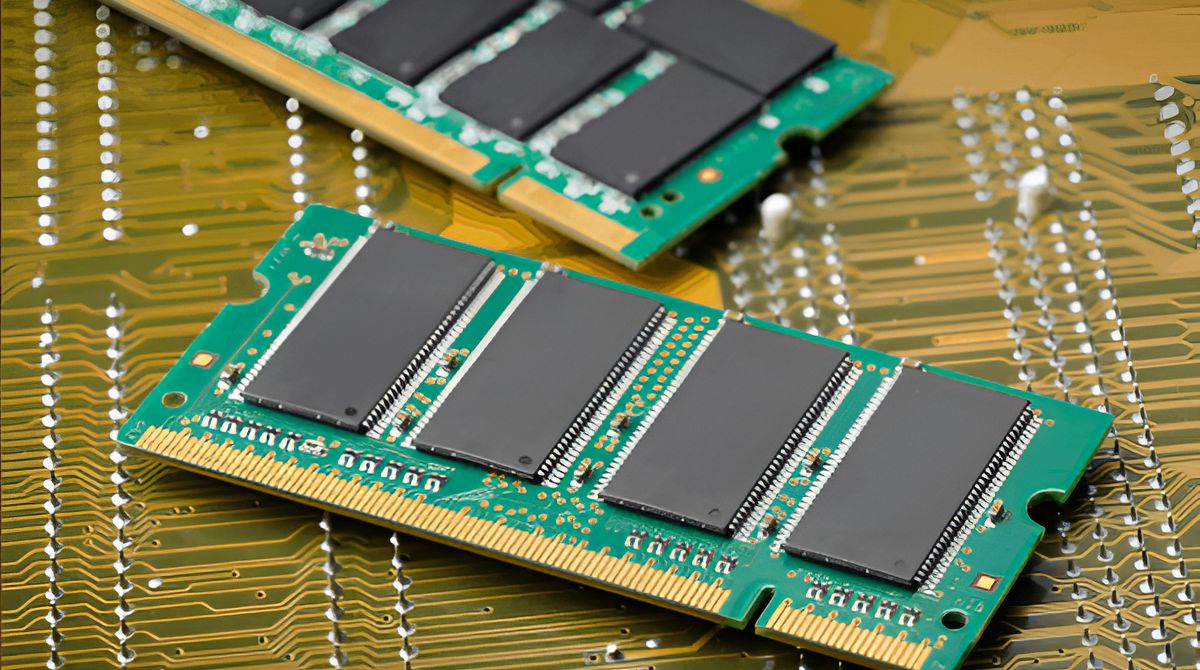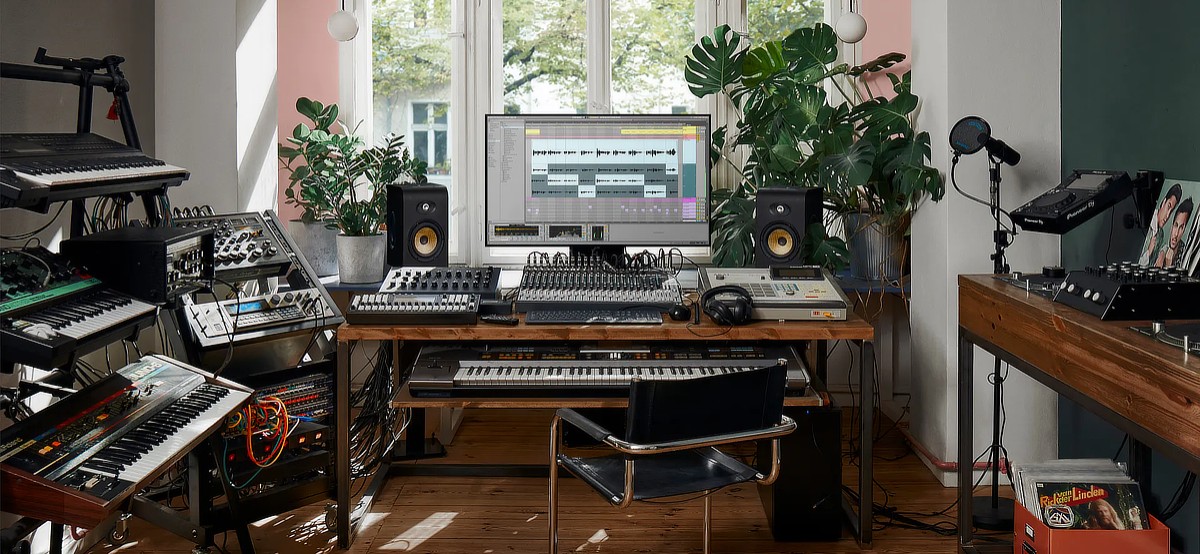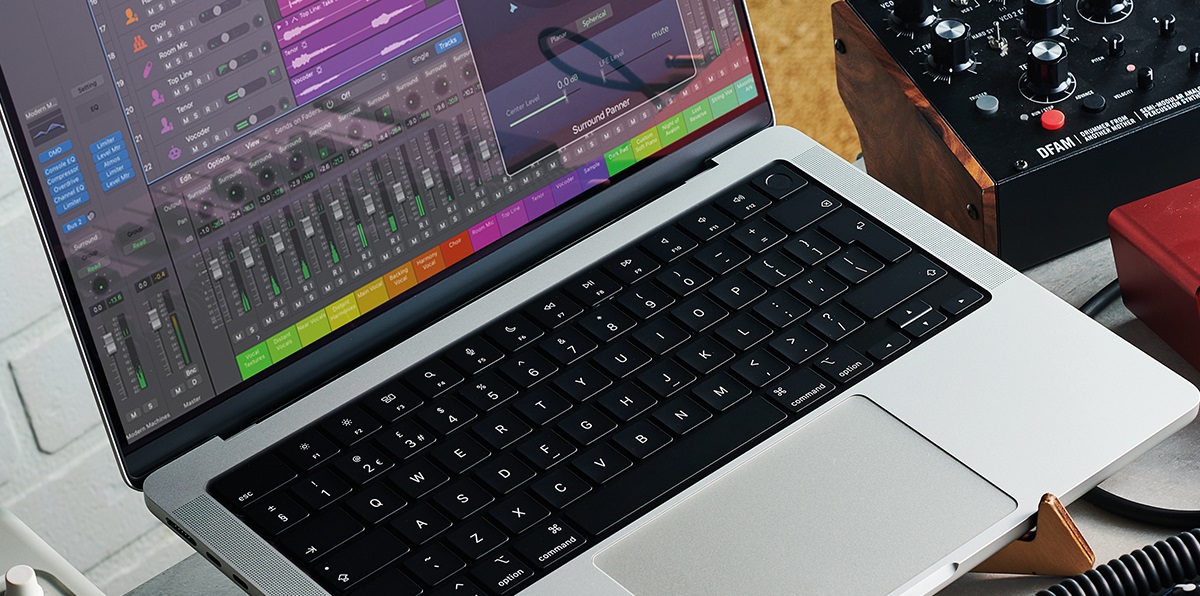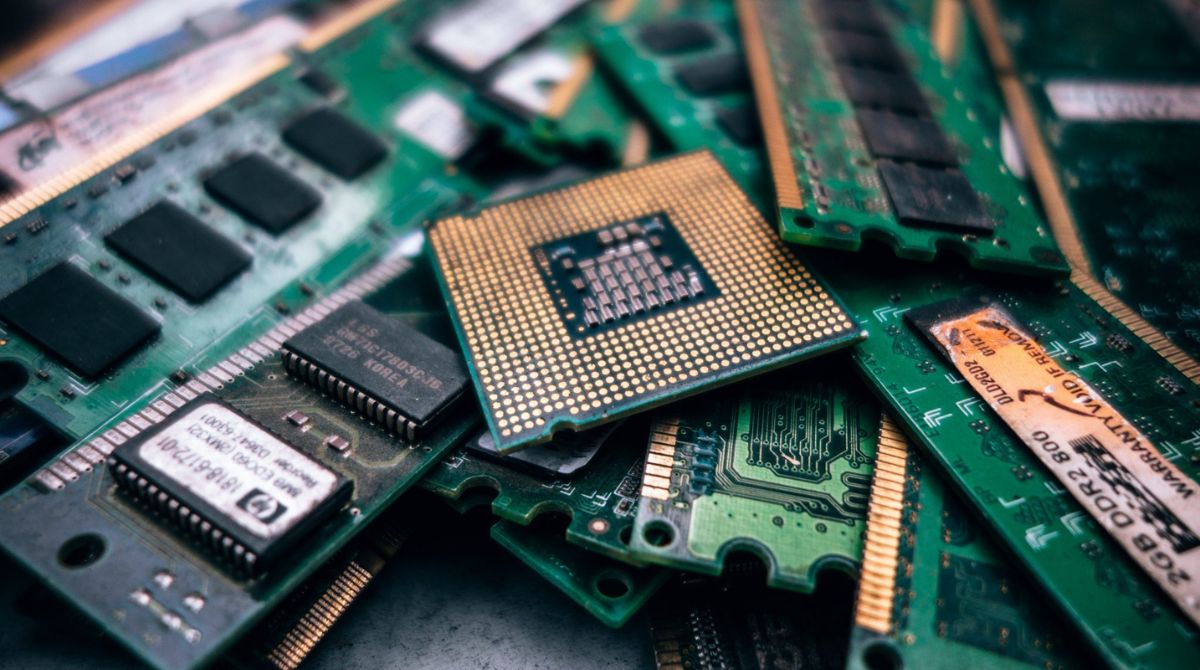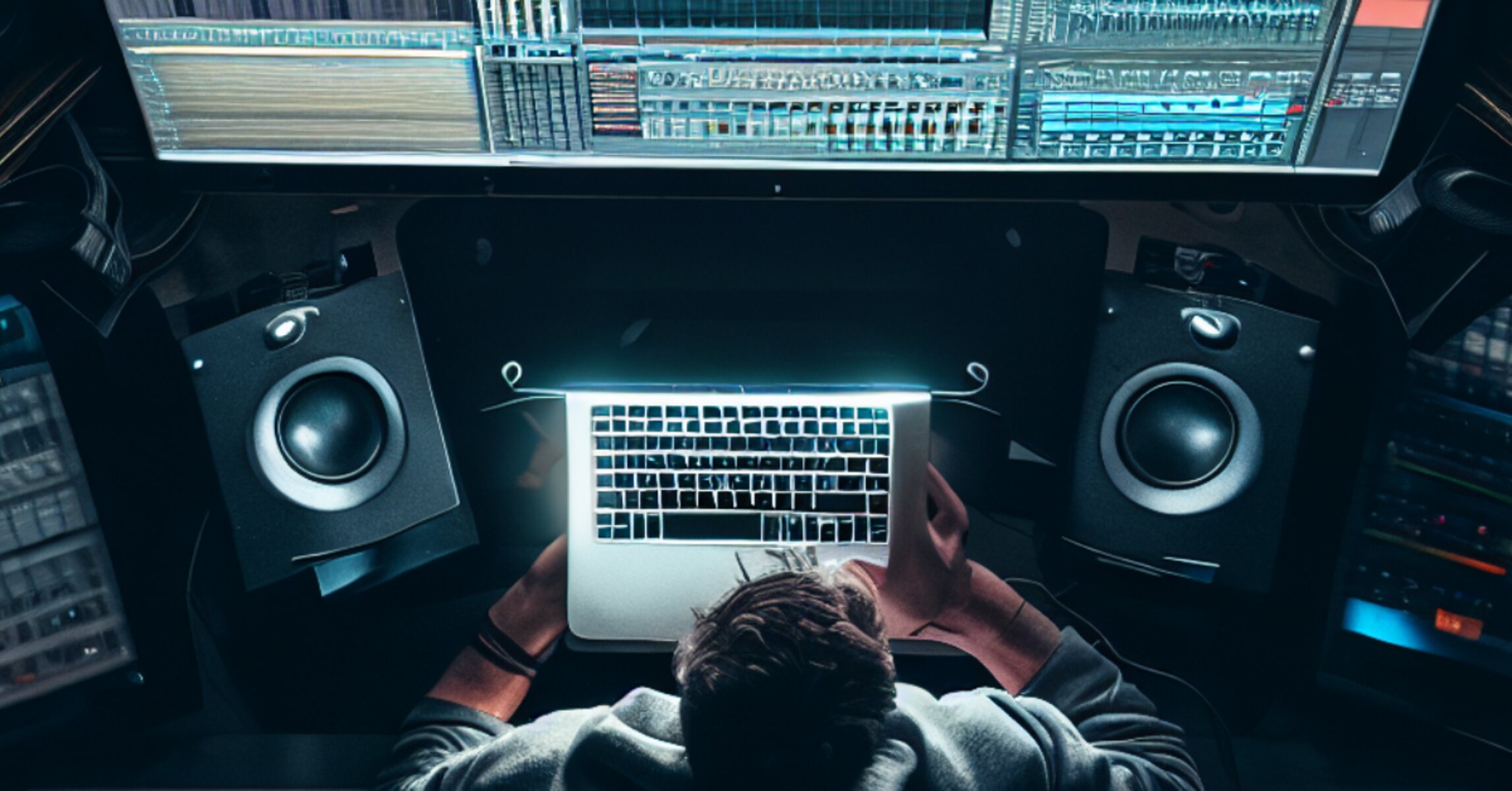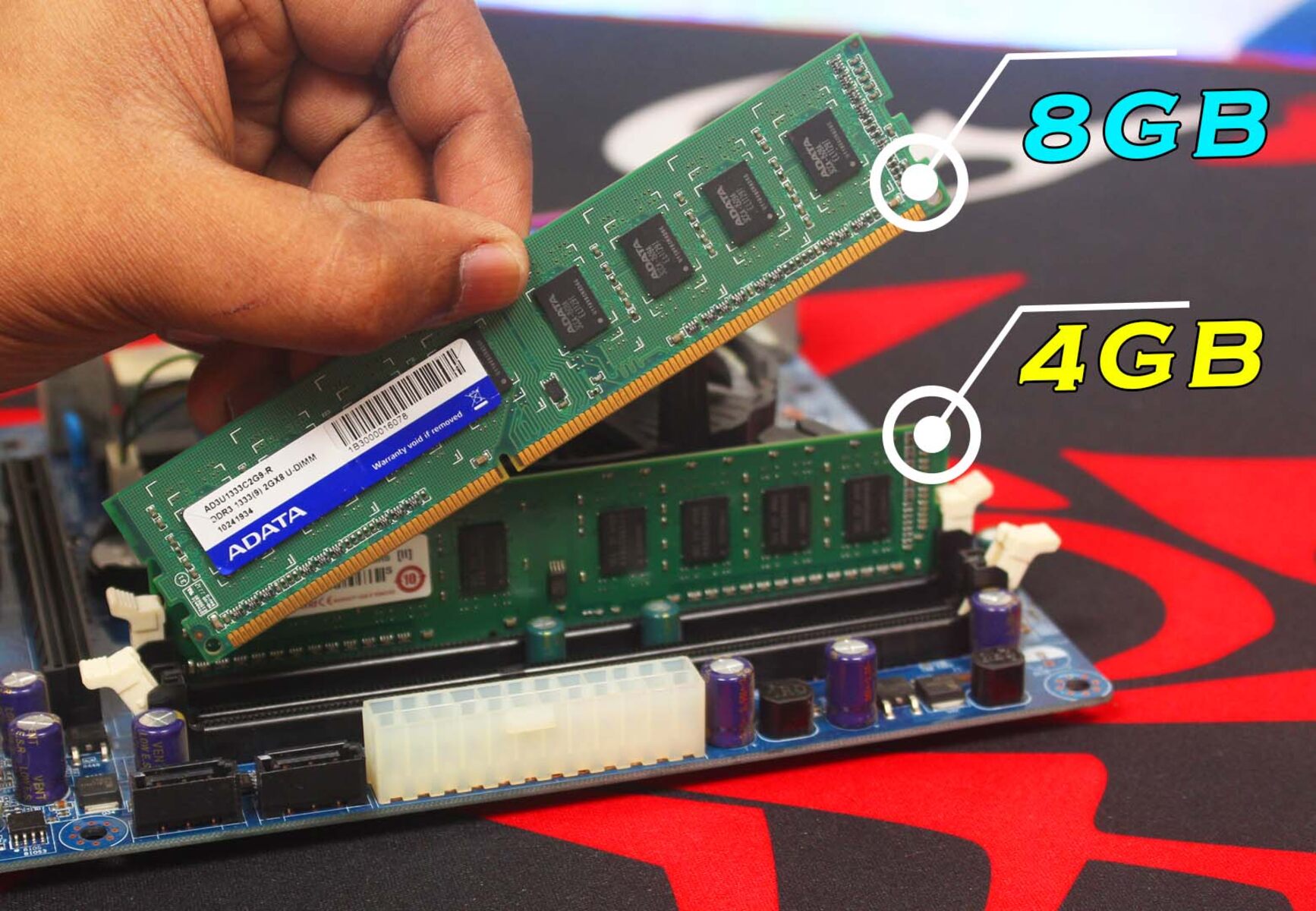Introduction
When it comes to producing music, having the right tools is essential. And one of the most crucial components for a seamless music production experience is RAM (Random Access Memory). RAM plays a significant role in determining how efficiently your computer can handle multiple tasks and process large amounts of data.
But what exactly is RAM, and why is it so important in music production? RAM is a type of computer memory that temporarily stores data that is actively being used by the computer’s processor. Unlike storage devices such as hard drives or solid-state drives, RAM provides faster and more direct access to data, allowing the computer to retrieve information quickly.
In music production, where you may be working with multiple tracks, effects, plugins, and virtual instruments simultaneously, having an adequate amount of RAM is crucial. Insufficient RAM can result in delayed playback, audio dropouts, and even crashes, which can disrupt your creative flow and hinder your productivity.
Choosing the right amount of RAM for music production depends on various factors, including the complexity of your projects, the number of tracks you work with, and the plugins and virtual instruments you use. In this article, we will explore the minimum RAM requirements for music production, as well as the recommended RAM to ensure smooth performance.
Additionally, we will discuss the factors you should consider when choosing RAM for music production and highlight common mistakes to avoid. Whether you are starting out as a producer or looking to upgrade your existing setup, this guide will help you make an informed decision about your RAM needs.
What is RAM?
Before we delve deeper into the importance of RAM in music production, let’s first understand what RAM actually is. RAM stands for Random Access Memory and is a vital component of a computer’s hardware. It acts as a temporary storage space, allowing the computer to quickly access and process data that is actively being used.
Unlike permanent storage devices such as hard drives or solid-state drives (SSDs), which store data even when the computer is turned off, RAM is volatile memory. This means that the data stored in RAM is temporary and gets erased once the computer is powered off or restarted.
RAM plays a crucial role in the overall performance of your computer, as it determines how efficiently various tasks are executed. When you launch a music production software or DAW (Digital Audio Workstation) and load up your project, all the different elements such as tracks, plugins, and samples need to be stored in RAM for quick access.
The more RAM you have in your computer, the more data it can store and process without slowing down. This is especially important in music production, where you often work with large audio files, virtual instruments, and complex effects. Insufficient RAM can lead to lag, audio glitches, and even system crashes, disrupting your workflow and causing frustration.
RAM also works closely with the computer’s processor (CPU), as they both collaborate to handle the tasks assigned by the user. The CPU fetches data from RAM and performs calculations, and then writes the results back to RAM. This constant communication between RAM and the CPU ensures the smooth execution of tasks, allowing you to work on your music projects without any significant performance issues.
It is important to note that RAM is separate from the long-term storage devices in your computer. While a larger hard drive or SSD can provide ample space to store your music files, an adequate amount of RAM is necessary to process and manipulate those files in real-time during music production.
The Importance of RAM in Music Production
RAM plays a vital role in the smooth and efficient operation of music production software and DAWs (Digital Audio Workstations). As a music producer, you need to work with multiple tracks, effects, virtual instruments, and plugins simultaneously, and all these tasks require a significant amount of RAM to perform optimally. Here are some key reasons why RAM is crucial in the music production process:
1. Seamless Multitasking: When working on music projects, you often have to handle various tasks simultaneously, such as recording, editing, mixing, and adding effects. Having adequate RAM allows your computer to handle these tasks smoothly and avoid performance issues like audio dropouts or latency. With more RAM, you can have more tracks and plugins active at once, giving you the flexibility to explore and experiment with different sounds without limitations.
2. Efficient Handling of Samples and Virtual Instruments: Working with virtual instruments and sample libraries is common in music production. These instruments and samples take up a significant amount of RAM as they need to be loaded into memory for playback. If you have limited RAM, you may experience glitches or slowdowns when playing back MIDI sequences or manipulating samples. Sufficient RAM ensures that your computer can handle these resources effortlessly, allowing for smooth playback and real-time manipulation.
3. Quick Response Time: The speed at which your computer can process commands and respond to your actions is crucial for a seamless music production workflow. Insufficient RAM can lead to delays in tasks like opening and closing projects, saving changes, or navigating through complex arrangements. With ample RAM, your computer can respond quickly, minimizing interruptions and allowing you to focus on your creative process.
4. Stability and Reliability: Music production projects can be complex, with large file sizes and demanding processing requirements. Insufficient RAM can strain your computer’s resources, leading to system crashes or software freezes. By having enough RAM, you provide your computer with the necessary resources to handle the workload, ensuring a stable and reliable music production environment.
5. Future-Proofing Your System: As music production software and plugins continue to evolve, they become more demanding in terms of system requirements. By investing in ample RAM now, you future-proof your music production setup, ensuring it can handle future updates and enhancements.
In essence, having the right amount of RAM in your music production setup is crucial for seamless multitasking, efficient handling of samples and virtual instruments, quick response time, stability, and future-proofing your system. It allows you to focus on unleashing your creativity without being hindered by technical limitations.
Minimum RAM Requirements for Music Production
When determining the minimum RAM requirements for music production, it’s essential to consider the specific software, plugins, and virtual instruments you intend to use. The minimum requirements may vary depending on the complexity of your projects and the number of tracks you work with. However, here are some general guidelines to help you ensure a smooth music production experience:
1. Operating System Requirements: The first step is to check the minimum RAM requirements specified by the operating system (OS) you are using. Windows, macOS, and Linux each have their own recommended RAM specifications. It’s important to have enough RAM to meet or exceed these requirements to ensure the stability and performance of your music production software.
2. Music Production Software Requirements: Every DAW and music production software has its own minimum hardware specifications. These specifications, including RAM requirements, are usually stated on the software’s website or included in the software documentation. Check the recommended RAM requirement for your specific software and make sure to meet or exceed it.
3. Plugins and Virtual Instruments: Plugins and virtual instruments can significantly impact RAM usage. Some plugins require more RAM than others, especially those that utilize extensive sample libraries or complex algorithms. It’s crucial to check the RAM requirements for the plugins and virtual instruments that you plan to use in your music production. The cumulative RAM requirements of all the plugins and virtual instruments you use should be taken into account when determining the minimum RAM needed.
4. Project Complexity: The complexity of your music projects affects the RAM requirements. If you typically work with many tracks, effects, and automated parameters, you will need more RAM to handle the increased demand. Additionally, working with high-quality audio files and large sample libraries will also increase the need for more RAM. Consider the average complexity of your projects and ensure that you have enough RAM to handle them without experiencing performance issues.
5. Multitasking: If you tend to multitask while producing music, by running other applications simultaneously, such as web browsers, sample editors, or video editing software, you need to account for the additional RAM requirements of these applications. Ensure that you have enough RAM to handle both your music production software and any other applications you plan to use concurrently without causing performance degradation.
6. Future Expansion: While considering the minimum RAM requirements, it is also wise to plan for future expansion. As your music production skills and projects grow, you may need more resources in terms of RAM to handle increased complexity. Investing in a slightly higher amount of RAM than the minimum requirements can provide some breathing room and accommodate future expansion without the need for immediate upgrades.
Remember, the minimum RAM requirements are the bare minimum necessary for music production. To ensure optimal performance and avoid potential issues, it is recommended to have more RAM than the minimum requirements, especially if you work with complex projects or resource-intensive plugins and virtual instruments.
Recommended RAM for Music Production
While the minimum RAM requirements provide a baseline for music production, having more RAM can significantly enhance your workflow and overall performance. Recommended RAM specifications are often higher than the minimum requirements and take into account factors such as project complexity, multitasking, and future expansion. Here are some guidelines to help you determine the recommended amount of RAM for music production:
1. Project Complexity and Track Count: The complexity of your music projects and the number of tracks you work with are crucial factors in determining the recommended RAM. If you frequently work on complex arrangements with a large number of tracks, effects, and plugins, you will benefit from having more RAM. This ensures that your computer can handle the processing demands of your projects without experiencing lag or audio dropouts.
2. Sample Libraries and Virtual Instruments: If you rely heavily on sample libraries and virtual instruments in your music production, having sufficient RAM is vital. These resources often require a significant amount of memory to load and manipulate. The more RAM you have, the smoother the playback and editing experience will be, allowing you to fully utilize the capabilities of your virtual instruments without limitation.
3. Multitasking and Resource-Intensive Applications: If you frequently multitask while working on music production, running other resource-intensive applications alongside your DAW, having more RAM is advisable. This includes running web browsers, sample editors, video editing software, or other plugins that may require additional memory. With ample RAM, you can maintain the performance of your music production software while running other applications smoothly.
4. Future-Proofing Your Setup: Future expansion is an important consideration when choosing the recommended amount of RAM for music production. As technology advances and software becomes more resource-intensive, music production requirements may increase. Investing in more RAM than the minimum requirements ensures that your setup remains capable of handling upcoming updates and projects, prolonging the lifespan of your system.
5. Compatibility with CPU and Operating System: It is crucial to consider the compatibility of RAM with your CPU and operating system. Check the specifications recommended by the CPU manufacturer and the operating system to ensure optimal performance. In some cases, the CPU or motherboard may have limitations on the maximum amount of RAM they can support, so take this into account when determining the recommended RAM for your music production setup.
While the recommended amount of RAM for music production varies depending on individual needs and preferences, a good starting point is 16GB. This amount of RAM provides enough headroom for most music production tasks and ensures smooth performance even with moderately complex projects. However, if you work on more extensive projects, use resource-intensive plugins, or require extensive multitasking, consider upgrading to 32GB or even 64GB of RAM for a more seamless and efficient music production experience.
Ultimately, the recommended RAM for music production depends on your specific requirements and the nature of your projects. It is always better to have more RAM than to fall short, as it allows you to work with larger projects, more plugins, and samples without compromising performance. Assess your needs, budget, and future goals to determine the amount of RAM that will best suit your music production endeavors.
Factors to Consider When Choosing RAM for Music Production
Choosing the right RAM for your music production setup involves considering various factors that ensure optimal performance and compatibility with your specific requirements. Here are some crucial factors to keep in mind when selecting RAM for music production:
1. Compatibility: Ensure that the RAM you choose is compatible with your computer’s motherboard and CPU. Check the specifications of your motherboard and CPU to determine the type, speed, and maximum capacity of RAM they support. Choosing RAM that is not compatible may result in compatibility issues or limited performance.
2. Capacity: The capacity of RAM refers to the amount of memory it can hold. Consider the complexity of your music projects, the number of tracks, plugins, and virtual instruments you work with, and the multitasking requirements. Determine the capacity of RAM that will meet your needs both now and in the future, allowing room for growth and expanding project requirements.
3. Speed and Latency: RAM speed, measured in MHz, influences how quickly data can be transferred to and from the RAM module. Higher-speed RAM can provide faster access to data, which can result in improved performance, especially in tasks that involve loading samples or large projects. Additionally, consider the latency of RAM, which measures its response time. Lower latency indicates faster data access, resulting in smoother workflow and decreased latency issues.
4. Dual-Channel or Quad-Channel: Dual-channel and quad-channel configurations utilize multiple RAM modules to increase bandwidth and overall performance. Ensure that your motherboard supports these configurations if you plan to use them. While dual-channel configuration is more common, quad-channel can provide even greater performance benefits for memory-intensive tasks.
5. Brand and Quality: Opt for reputable brands known for their reliability and quality. RAM modules from reliable manufacturers are more likely to have undergone rigorous testing and exhibit better stability and compatibility. High-quality RAM can contribute to a smoother and more reliable music production experience.
6. Budget: As with any hardware purchase, budget is an important factor in choosing RAM. RAM prices can vary depending on the capacity, speed, and brand. Consider your budget and strike a balance between the recommended capacity and performance requirements for your music production needs.
7. Upgradability: Keep in mind the potential for future upgrades. If you foresee expanding your music production setup or working on more demanding projects in the future, choosing RAM that can be easily upgraded is advantageous. Consider the maximum capacity supported by your motherboard and plan ahead to accommodate future expansion.
8. Warranty and Support: Check the warranty and customer support provided by the RAM manufacturer. A longer warranty period and reliable customer support can offer peace of mind in case you encounter any issues with your RAM module.
By considering these factors, you can make an informed decision when choosing RAM for your music production setup. Remember to evaluate your specific needs, project requirements, and compatibility with your existing hardware to ensure seamless performance and an enhanced music production experience.
Common Mistakes to Avoid When Choosing RAM for Music Production
Choosing the right RAM for your music production setup is crucial for optimal performance and a smooth workflow. However, there are several common mistakes that people often make when selecting RAM. Avoiding these mistakes will help ensure that you choose the best RAM for your specific needs. Here are some common mistakes to avoid:
1. Not Checking Compatibility: One of the biggest mistakes is not checking the compatibility of the RAM with your computer’s motherboard and CPU. Different motherboards and CPUs support specific types of RAM, so it’s important to verify compatibility before making a purchase. Failing to do so could result in compatibility issues or the RAM not functioning at its maximum potential.
2. Underestimating RAM Requirements: Underestimating the RAM requirements for your music projects can lead to performance issues down the line. If you frequently work with complex arrangements, utilize multiple tracks, plugins, and virtual instruments, it’s crucial to choose a RAM capacity that can handle the demands of your projects. It’s better to have more RAM than you initially think you need to avoid bottlenecks and ensure a seamless workflow.
3. Focusing Only on Capacity: While RAM capacity is essential, it’s not the only factor that determines performance. Some individuals make the mistake of solely focusing on getting the highest capacity possible without considering other factors like speed, latency, and compatibility. It’s important to strike a balance between capacity and other technical specifications to optimize performance.
4. Not Considering Future Expansion: Many people overlook the potential for future expansion when choosing RAM for music production. As your music projects grow in complexity or you start utilizing more resource-intensive plugins and virtual instruments, your RAM requirements may increase. It’s important to consider future needs and choose RAM that can be easily upgraded if necessary.
5. Ignoring Brand Reputation and Quality: Going for the cheapest RAM option or unknowingly purchasing from a lesser-known or unreliable brand can lead to issues. It is important to research and choose RAM from reputable manufacturers known for their reliability and performance. High-quality RAM modules are more likely to be stable, compatible, and durable, providing a better overall experience.
6. Overlooking System Requirements: Each music production software and plugin has its own recommended system requirements, including RAM specifications. Neglecting to check these requirements and assuming that your current RAM can handle them can result in unexpected performance issues. Always ensure that your RAM meets or exceeds the system requirements of your essential software and plugins.
7. Neglecting RAM Speed and Latency: The speed and latency of RAM can have a significant impact on overall performance. Some individuals prioritize capacity over speed and latency, which can result in slower data transfer and increased latency. It’s important to strike a balance between capacity and speed/latency to ensure a snappy and responsive music production environment.
8. Not Checking Warranty and Support: RAM modules can occasionally have manufacturing defects or performance issues. Failing to check the warranty and support provided by the manufacturer can leave you with little recourse if you encounter any problems. Always choose RAM modules with a solid warranty and reliable customer support to protect your investment.
Avoiding these common mistakes when choosing RAM for music production is crucial for creating a stable and efficient music production setup. By considering compatibility, accurately estimating your RAM needs, focusing on quality, and being mindful of future expansion, you can ensure a smooth and reliable music production experience.
Upgrading RAM for Better Music Production Performance
As you dive deeper into music production and take on more complex projects, you may find that your current RAM is no longer sufficient to meet the demands of your workflow. In such cases, upgrading your RAM can provide a significant boost in performance and enhance your music production experience. Here are some reasons why upgrading RAM is a wise investment:
1. Increased Capacity: Upgrading your RAM allows you to increase the memory capacity of your computer. This extra capacity enables you to work with more tracks, plugins, and samples without experiencing slowdowns or audio dropouts. It provides you with greater flexibility and the ability to handle larger projects with ease.
2. Improved Multitasking: Music production often involves running multiple tasks simultaneously, such as recording, mixing, and using virtual instruments. With more RAM, your computer can handle these tasks with increased efficiency. It enables seamless multitasking and reduces the likelihood of encountering performance issues during complex music production sessions.
3. Enhanced Sample and Plugin Handling: RAM is crucial for managing samples and working with resource-intensive plugins. Upgrading your RAM allows for faster loading of large sample libraries and reduces the latency when playing back samples. It also provides more headroom for running CPU-intensive plugins, resulting in smoother performance and improved sound quality.
4. Improved Workflow and Productivity: Insufficient RAM can lead to frustrating lags, delays, and crashes—seriously hindering your productivity. By upgrading your RAM, you can minimize these interruptions and create a more efficient workflow. With faster response times and uninterrupted playback, you can focus on your creative process, resulting in a more productive music production environment.
5. Future-Proofing: Technology is constantly evolving, and music production software and plugins are becoming more resource-intensive. Upgrading your RAM ensures that your system is ready to handle future updates and advancements in the industry. By investing in more RAM now, you can future-proof your setup and avoid the need for immediate upgrades when new software versions are released.
6. Cost-Effective Upgrade: Upgrading RAM is often a cost-effective way to improve performance compared to other hardware upgrades, such as replacing the CPU or upgrading storage devices. It offers a significant performance boost for its relatively lower cost, making it a worthwhile investment for any music producer looking to enhance their system’s capabilities.
7. Easy Installation: In most cases, upgrading RAM is a straightforward process that can be done with basic computer knowledge. It involves opening your computer case, removing the old RAM modules, and installing the new modules in their place. Just make sure to follow the manufacturer’s instructions and ensure compatibility with your motherboard.
Before upgrading your RAM, research the specific requirements of your computer and consult the documentation or support resources provided by the manufacturer. Determine the maximum amount of RAM your system can support and choose modules that match the recommended specifications. By upgrading your RAM, you can unlock the full potential of your music production setup and enjoy a smoother, more efficient workflow.
Conclusion
RAM is a critical component for achieving optimal performance in music production. It allows your computer to handle multiple tasks, load and manipulate samples, and run resource-intensive plugins and virtual instruments seamlessly. By choosing the right amount of RAM for your music production setup, you can ensure a smooth and efficient workflow, allowing you to focus on your creativity without being hindered by technical limitations.
When selecting RAM for music production, it is important to consider factors such as compatibility, capacity, speed, and latency. Ensuring that the RAM matches the requirements of your operating system, music production software, and plugins is essential for optimal performance. Additionally, being mindful of your project complexity, multitasking requirements, and future expansion plans can help you make an informed decision about the amount of RAM you need.
Avoiding common mistakes such as underestimating RAM requirements, neglecting compatibility, and solely focusing on capacity will help you choose the best RAM for your needs. Investing in reliable brands known for their quality and performance, checking warranty and support options, and considering cost-effectiveness are also important factors to consider.
Upgrading your RAM when necessary can provide several benefits, including increased capacity, improved multitasking, enhanced handling of samples and plugins, improved workflow and productivity, future-proofing, and cost-effectiveness. It is a valuable investment that can significantly enhance your music production experience without the need for major hardware upgrades.
In conclusion, RAM plays a vital role in the performance and efficiency of your music production setup. By choosing the right RAM specifications, avoiding common mistakes, and upgrading when needed, you can maximize your system’s capabilities and create music with a seamless and enjoyable workflow.









